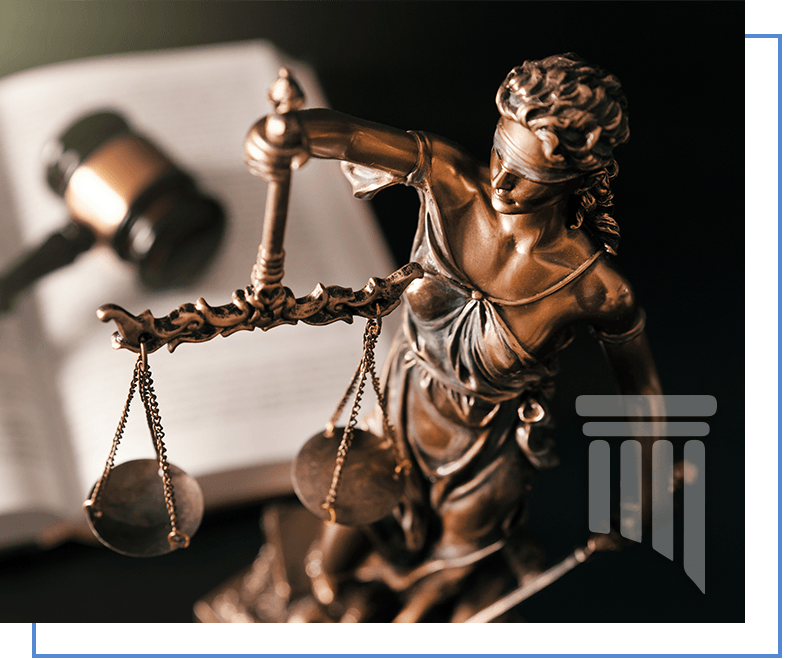
Marietta GA Probation Violation Attorneys
Consequences for violating probation in a Georgia court can be severe. An individual on probation (“Probationer”) could face increased penalties including prison time so it is important for the Probationer to have an attorney assist him/her with the case. The following discussion is to help the reader better understand probation matters for criminal defendants in Georgia.
What is Probation?
Probation is essentially being able to serve a sentence outside of jail under the supervision of a probation officer provided the Probationer meets all of the conditions of probation as set out by the sentencing court. For example, a criminal defendant might be sentenced to a ten year sentence all of which is to be served on probation. Other sentences may be what are called “split sentences”-ones that consists of a period of jail/prison time followed by a period of probation. An example of a “split sentence” would be a person sentenced to 10 years with the 10 years to be served in the following fashion: two years in jail/prison followed by eight years on probation. The first two years would be served in custody and the remaining eight years of the sentence would be served on probation (outside of custody) provided the criminal defendant meets any and all other conditions of their sentence. In essence, the probated portion of a sentence is a jail sentence that a criminal defendant is permitted to serve outside of custody. If you are on probation and you are not clear regarding your obligations, you need to carefully review the sentencing paperwork you were provided by the court.
Typical Conditions of Probation
There are many conditions of probation that a judge can impose on an individual under sentence. Typically a criminal defendant is sentenced to two sets of conditions or requirements that they will have to meet while on probation, General Conditions and Special Conditions.
General Conditions of Probation:
The following are the typical General Conditions of Probation ordered by the court:
- Do not violation the laws of any governmental unit,
- Avoid injurious and vicious habits – especially alcoholic intoxication and narcotics and other dangerous drugs unless prescribed lawfully,
- Avoid persons or places of disreputable or harmful character,
- Report to the probation supervisor as directed and permit such supervisor to visit you at home or elsewhere,
- Work faithfully at suitable employment insofar as may be possible,
- Do not change your present place of abode, move outside the jurisdiction of the Court, or leave the State for any period of time without prior permission of the probation supervisor,
- Support your legal dependents to the best of you ability.
These General Conditions of Probation are imposed in most criminal cases in Georgia. They can however, vary slightly from jurisdiction to jurisdiction and from judge to judge. Often times these conditions can be modified to fit the circumstances of a particular case. Modifications are usually negotiated by the attorney with the prosecutor prior to the sentence being imposed. In many circumstances, probation conditions can be modified after sentencing and after an individual has been on probation for a period of time.
Special Conditions of Probation:
In addition to the General Conditions of Probation, a typical criminal sentence will have Special Conditions of Probations that may have to be followed depending on the facts and circumstances of that particular case.

The Right Choice for Your Defense
-
Constant Contact with Client
-
Results Oriented
-
Personalized Attention
-
100+ Years of Combined Experience
Client Experiences
Hear from those we've represented in their legal battles.
-
Thank you, Ben Smith, for your time, knowledge, and your thoroughness and wisdom
Former Client -
Ben, I was very impressed with how you handled everything.
Jeff -
Mr. Schnatmeier made the experience as painless as possible. He was very responsive and I was pleasantly surprised by how available he was.
Anonymous

Jail and Possible Consequences of a Violation of Probation
Should a court determine that the Probationer has violated probation, the court has a number of options on how to impose punishment. The court may revoke the individual’s probation and require him or her to serve some or all of the remainder of your probated sentence in jail. If the Probationer has violated a “General Condition of Probation” (See, the paragraph above entitled Typical Conditions of Probation), the trial court may revoke up to two years of the remainder of the felony probated sentence. If, however, the court finds that the Probationer has violated a “Special Condition of Probation or that he or she has committed a new felony offense, the court would be authorized to revoke the balance of any remaining probation. On a misdemeanor sentence, the court could revoke all of the remaining portion of the sentence for a violation of either a General or Special Condition of Probation. If the court revokes only a portion of probation and not the balance or remainder of the probation, the court may then reinstate the individual on probation with all original conditions in place upon the Probationer’s release from custody.
Alternatives and Consequences Other than Jail for Probation Revocations
It is important to remember that the court has wide latitude in determining how and what, if any, punishment to impose. The court may simply order an individual to continue with probation, or the court may require additional community service, intensive probation, diversion centers, and probation detention centers, special alternative incarcerations such as work-release and/or in-home incarceration, ankle monitors, and/or additional counseling. The court is not limited to simply ordering the Probationer to go to jail. Our firm works closely with a variety of treatment providers including counselors for alcohol and/or drug addictions, anger and violence, and other personality disorders. We can put you in touch with in-home incarceration agencies and other agencies in order to present the judge with options other than simply incarceratio
Please contact our Marietta criminal defense attorneys at Smith, Schnatmeier, Dettmering & Kilgo, LLP, if you have questions about probation matters. Our firm regularly handles probation matters in Cobb County, the cities of Marietta, Smyrna, Acworth, Austell and Powder Springs; Cherokee County, the cities of Canton, Woodstock and Holly Springs; Douglas County, the city of Douglasville; Paulding County and the cities of Hiram and Dallas; Fulton County, the cities of Sandy Springs and Atlanta.


